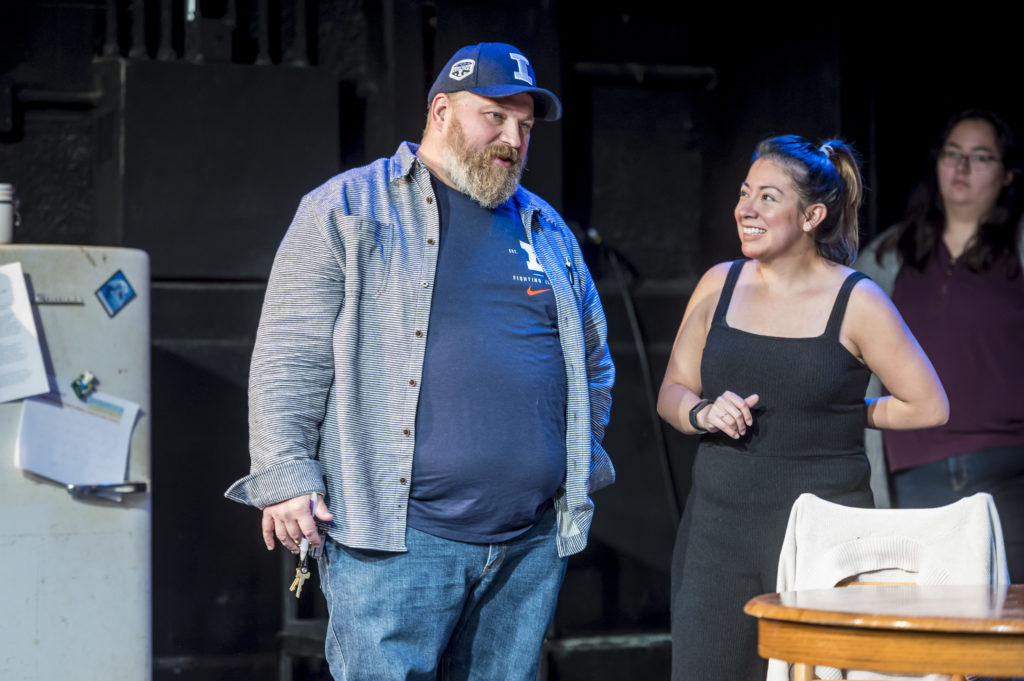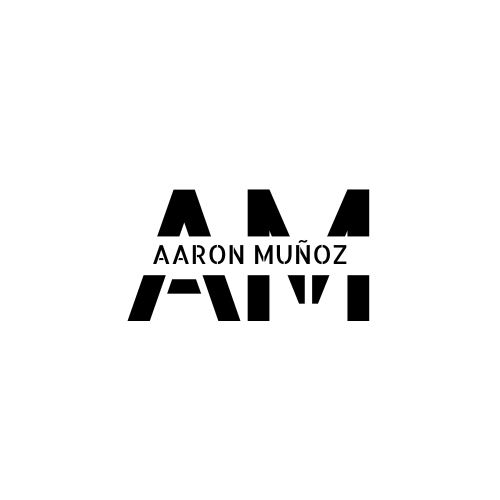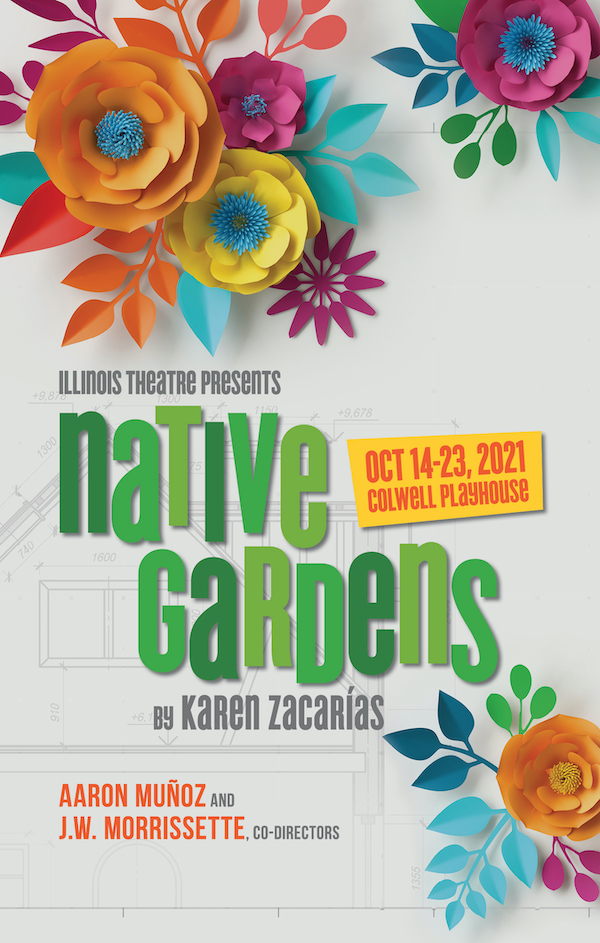teaching

RESEARCH STATEMENT
Throughout my career as a professional actor, playwright, director, and producer I have been led by my willingness to be challenged and well-rounded, fueled by my interest in new stories, technologies and forms. From appearances on celebrated television shows Stranger Things and Chicago Fire to new play development at regional theatres and my own company Nashville Story Garden, my creative work and research is multi-faceted and forward-looking. When I began at the University of Illinois, my feet were firmly planted in the areas of both filmed and live performance. During my time here, I am also growing the field of digital theatre as an innovator and creative force. As a theatre artist, I am especially drawn to new works and stories from underrepresented communities, combining activism and theatre. As an actor and director, I continue to cultivate independently produced projects with longtime collaborators in addition to working in more commercial film venues and enduring national regional theatres. Independent producing frees me to develop original material in less constrained ways and to experiment and explore new possibilities of representation. Working in recognized national venues keeps me connected to professional practices and emerging trends in theatre and film.
Acting in Film and Television
My goals as an actor in film and television have been to combine working at the highest level with leaders in the field and be instrumental in telling smaller, more personal stories. For every invaluable experience working on an acclaimed TV show such as The Walking Dead or Stranger Things, there are rich collaborations and worthwhile discoveries made in independent film. As an actor, my preparation and research into the role I’m playing stays the same, whether it’s on a multimillion dollar set or a low budget indie film. As Kevin Klinginpill in NBC’s Chicago Fire, I found myself on set dressed head to toe in firefighter gear holding an axe as a car exploded in downtown Chicago. For two episodes, my character tried unsuccessfully to join the main fire house, while demonstrating his inability to work well with others. My extensive research for the role included interviewing real firefighters about the job, adapting a Chicago accent, and studying for the test to becoming a fireman.
I undertook similar research for John Isberg’s short film Red Horse, set during a ceasefire in the Civil War, including dialect work, inspiration from art and music during the 1800’s and screening of Civil War documentaries. I played Alden, a seasoned combat veteran in this tense drama. Shot exclusively outdoors during the height of the pandemic, Red Horse was a rare opportunity to perform during a time when most theatres and film productions were shut down. Working intimately with a small film crew meant that problem solving became a larger part of my job as an actor as we navigated the summer heat and experienced audio difficulties shouting across a river. Equally important to my work as an actor was being part of a story that used characters from the Union and Confederacy to examine our own national tension and divisions.
New Plays and Activism
There is nothing more vital than new voices in the American Theatre. As a Latino theatre maker who contributes to the creation of new work from many creative positions, I see the importance of new plays for the sustainability of the art form and its connection to community. My strength as a versatile artist serves this mission well, my creative pursuits as an actor, director, playwright, and producer often overlap.
“One of the most innovative and exciting companies in town” – Nashville Scene
As founding Artistic Director of Nashville Story Garden, an award-winning company that serves as an incubator for new projects and vibrant theatre productions, I envisioned an artistic home for new work. By producing “pop-up” new play festivals such as She/Her/Hers and Grow Up, Nashville Story Garden has built a community of artists that have a laboratory to experiment and grow. This growth has expanded beyond the walls of the theatre. Active as a playwright, actor, director, and producer I’ve led Nashville Story Garden to create successful and award-winning short films (South By Southwest Film Festival, Virginia Film Festival), podcasts (Best of Nashville, Nashville Scene), and vibrant theatre productions of established texts. An active member of the community, Nashville Story Garden has established partnerships with Nashville Public Schools, Metro Parks, and Open Table collaborating on literacy, arts education, and homelessness.
My work in new plays extends past Nashville Story Garden and into the national network of new play development and activism. Especially focused on new works from Latinx artists, my own contributions as a director and actor has both strengthened my bond with fellow Latinx artists and expanded my mission to shape a “new canon” of American plays. Whether it’s acting in a workshop of Bernardo Cubría’s The Hispanic/Latino/Latina/Latinx/Latine Vote or playwriting that examines cancel culture, body image and the #MeToo movement with Lost Laughs: The Slapstick Tragedy of Fatty Arbuckle, my new play contributions exemplify arts activism. On a global scale, this means working with the exiled Belarusian playwright Andrei Kurichik on his plays highlighting the atrocities surrounding the protests during the 2020 election. Nationally, my work is tied to The Recovery Project, an initiative working to heal the stigma of addiction and recovery through the development of new plays, theatre-education programs, and outreach.
Digital Theatre and BRIDGE Funding
I am invested in the connections between theatre and film and the future of live performance. My work in digital theatre lies at the intersection of these two areas, both as a springboard for innovation, research, and practical applications in search of a new hybrid art form. I believe that digital theatre will expand the way we tell stories, offer accessibility for both theatre makers and audiences, and open the door for the next generation of creative theatre artists and patrons.
During the early months of the Covid-19 pandemic, I took classes in cinematography, lighting, sound, editing and invested in film equipment. I collaborated in new play development over Zoom and created works such as Folxtales, where I served as performance director and script supervisor. Colleague Brant Murray’s article Pivoting and Preserving in the journal Theatre Design and Technology highlighted Folxtales, a large-scale multi-media art installation of new works that allowed students and faculty to creatively collaborate while in strict COVID-19 protocols. Throughout this time of exploring, learning, creating, and ingesting digital theatrical content, a central question began to emerge. How can we make digital theatre as entertaining as live theatre or film/television? To that end, what are the tools, knowledge base, and experiments that need to move digital theatre in that direction?
These questions were the basis for a successful seed grant from BRIDGE (Birmingham-Illinois Partnership for Discovery, Engagement and Education) for The Universal Stage: Experiments in Hybrid Performance for 21st Century Theatre. The first such award secured in the Fine Arts, I worked alongside Associate Professor John Boesche and the University of Birmingham’s (UK) renowned Shakespeare Institute on this new hybrid form of storytelling. Our creative work incorporated in-person rehearsals of a Romeo and Juliet scene, media gathering from the participants through their smartphones, and live-streamed performances. In addition to collaborating with their faculty and graduate students on multi-camera live performance innovations, we presented our research, Digitizing Early Modern Performance, to an international audience in person and online at Stratford, England.
Digital Theatre will be a larger part of my creative work moving forward. The collaboration with The Shakespeare Institute and University of Birmingham will continue as we explore more funding and share developments in technology. Our goal is a co-production of Shakespeare’s A Midsummer Night’s Dream that will be live streamed from the US and UK.
As an actor and creator with strong foundations in the theatre and the film/TV worlds, it’s thrilling to find the ways in which they are connected. The discoveries in digital theatre and network of creators are growing. So too, is the desire for different narratives told on stages across the country and the world. As a versatile, forward-looking Latino artist I am excited about these original works and forms. Whether it’s a television show with millions of viewers worldwide or new digital theatre technologies with international partners, I am most passionate about how stories can deepen the connection to our communities and strengthen our understanding of each other.
TEACHING GOALS AND ACCOMPLISHMENTS
As an acting teacher my goal is to develop students as prepared, rigorous, flexible, collaborative artists capable of performing in a wide range of mediums both onstage and in various media. Within the collaborative art form of acting, I am specifically interested in my students’ building skills for film and television performance. I continue to evolve as a professor in the classroom by incorporating student feedback into courses and considering the current changes in the landscape of theatre, television, and film. As a Latino artist, I am proud of advocating to increase the visibility of underrepresented groups in my course materials, the creation of a digital showcase, and collaborations as a director in Illinois Theatre productions.
TEACHING COLLABORATION
What does it mean to collaborate? How does one maintain a sense of self while working creatively in a group? These essential questions are examined in all my classes, but most specifically in my sophomore acting class, Relationships in Acting. Goals for this class include the re-framing of failure, embodiment of “serious play,” and learning to activate physical and psychological impulses as important components of learning to collaborate as actors.
I use several exercises to help students achieve these goals. For example, The Ball Game’s simple objective—for the group to hit the ball in the air as many times as possible without it touching the floor—helps students overcome their initial competitive tendencies, apologies, anxiety, and fear, which are often present at the beginning of the semester for students. As the weeks progress, they learn that when the ball hits the ground (failure), it’s a natural progression to growth as a team. Concentration and focus combine with laughter and celebration (serious play) while planning ahead about how to hit the ball takes a backseat to in-the-moment reaction(impulse). During the semester we discuss how to be better at The Ball Game and what elements are present when we succeed. One thing is always clear: the class succeeds as a group. These learning objectives coincide with a measurable outcome, the number of hits counted. Every cohort always reaches over 100 consecutive hits, sometimes multiple times in the semester.
Exercises such as The Ball Game embody collaborative principles and exploration of problem solving directly applicable to scene work and the performance of texts. Are student actors listening to their scene partner? Are they trying new things without fearing they will be bad (fail)? Are they focused and attentive while making space for impulses? Collaboration is their foundation for progress in Illinois Theatre’s acting coursework and essential in the professional field of performance.
Collaboration in Production
As a resident director my role as educator expands to every other area within the Department of Theatre. Communicating with designers, technical directors, stage managers and actors in rehearsals and meetings allows me to incorporate one of my core philosophies in making theatre: As a creative ensemble we are only as strong as the weakest link, and anyone can be the weakest link at any time. There must be a foundational level of care and support for every artist working on the production. My job as a director and leader of a creative team is not to have the best idea, but to hear the best idea. In practice, this means that there is ample space for ideas, conversations and contributions from the whole production team. During rehearsals for the sold-out production of The Realness, I brought in Jaime Roundtree (an University of Illinois alumni) to speak about hip hop in the late 90’s Chicago and lead a rap cypher, in which every member of the cast and stage management team were required to rap. This group exercise taught everyone more about collaboration, failure, joy, and support than any meeting or by-the-books rehearsal could ever accomplish.
Collaboration with Media
The training in the Department of Theatre is primarily focused on developing techniques for the stage. For both graduate and undergraduate cohorts, my Acting for the Camera course alters the students’ perceptions on performance and how they communicate as actors. In the theatre, there is no barrier between the actor and the audience. In television and film, the actor’s performance is filtered through a director and editor. This course expands the students’ definitions of creative collaboration by exploring a new art form and understanding a fundamentally different way of working. Students must let go of the idea of ownership over a final product, instead trusting the process and their fellow filmmakers.
Like the opportunities to perform at Krannert Center for Performing Arts, I believe our actors must have time working on film sets before they graduate. To that end, I’ve established relationships outside the Theatre Department to enhance the classroom experience. These successful cross-campus collaborations include the Media Studies Department and their award-winning student films, and the professional crew at Video Services (responsible for the University’s marketing and messaging). Outside of class, I serve as a casting director (the creative position that helps form the cast), with our student actors performing in the award-winning feature horror film Final Summer (streaming on Amazon Prime), and multiple University videos with the Video Services team. Recent students have been seen on television shows such as FOX’s Empire, Starz’ Power Book IV:Force, and NBC’s Chicago Fire.
AREAS OF GREATEST SUCCESS AND GROWTH
“I wanted to pass along that we thought Aaron Muñoz did SUCH a great job directing the showcase last night – we were so impressed with everything!”
-Claire Simon Casting (NBC’s Chicago Fire, Chicago PD)
Collaboration with Graduating Actor Showcases
Our BFA and MFA Graduate Showcases are shown to industry professionals (Casting Directors, Agents, Managers and Artistic Directors) in the last semester of their time here at Illinois Theatre. Altered by COVID-19, our routinely live performance in Spring of 2020 needed to be delivered digitally. I used my skills as a filmmaker to remotely work with our graduating actors to shoot, edit and act in our first BFA Digital Showcase.
It was a giant success. Not only did our actors sign with agents and managers in Chicago, New York City, and Los Angeles, but also our 2020 BFA Showcase and Theatre Department received national recognition from publications The Hollywood Reporter and BroadwayWorld. The following year I directed the MFA showcase working with the University’s Video Services. Illinois’ showcase stood out amongst the most visible acting programs in the country such as Julliard, Yale, and NYU. Since 2020, I’ve directed and edited every digital showcase, paving the way for our graduating actors as they enter the professional field.
Collaboration with Playwrights Of Underrepresented Groups
As a Latino theatre artist, I have a mission to widen the scope of the American theatre and celebrate a “new canon” of plays and playwrights. Inclusion and representation must be foundational. For new classics to be developed, excellence in artistry is still the goal while inclusion and equity are essential ways in how we reach that goal. For decades the same time-honored texts, largely written by white men, have been used in acting classrooms and university productions. Starting with my first semester, I introduced into the curriculum these new classics by women and playwrights of color. Additionally, all the productions I’ve directed at Illinois Theatre have been from playwrights of the global majority, working with texts by Karen Zacarías, Idris Goodwin and Nancy García Loza. Beginning with the script allows those conversations about race, empathy, and appropriation to happen sooner and in a more organic way in the classroom and rehearsal hall. Many students are able to see themselves for the first time in an identity that parallels their own, and they are challenged to imagine stories and characters outside their own lived experiences.
Areas of Growth
At the start of my teaching career, I frequently encouraged students to blindly dive in, largely shaped by my own acting training. Discussions surrounding the work in class were limited, as I firmly believed that the experience of doing each exercise led to a more embodied understanding of the desired outcomes of collaboration and embracing of failure. Course goals were not met, and my approach needed to change. This required an interrogation of my own training to identify what paths no longer served this generation of students. Now, I plan for more conversations by integrating check-in times at the beginning and end of class. I discovered the more context students receive in and around our shared goals reduces obstacles and resistance as they learn to effectively collaborate. I also altered my syllabus, clearly outlining expectations and responsibilities while integrating newly published plays and materials about the current state of the field. As I’ve grown as an educator, there are two more ways in which I’ve changed in my teaching of acting. Since students in my classes frequently encounter texts from underrepresented writers, there is extra care and conversations surrounding casting cross-culturally and through the gender spectrum in a laboratory environment. I no longer routinely assign roles but ask students to cast themselves while supplementing this new canon with podcasts and documentaries that provide multiple perspectives on professional practices. Finally, though my choice of materials was from the global majority, I taught from a primarily western based acting foundation, which was well represented in the department. I’ve moved towards a more eastern based approach. For the past two years, I’ve used Yoshi Oida’s The Invisible Actor as my sole acting text with Sophomores, which incorporates training and exercises from Japanese Noh, Kabuki theatre and martial arts.









